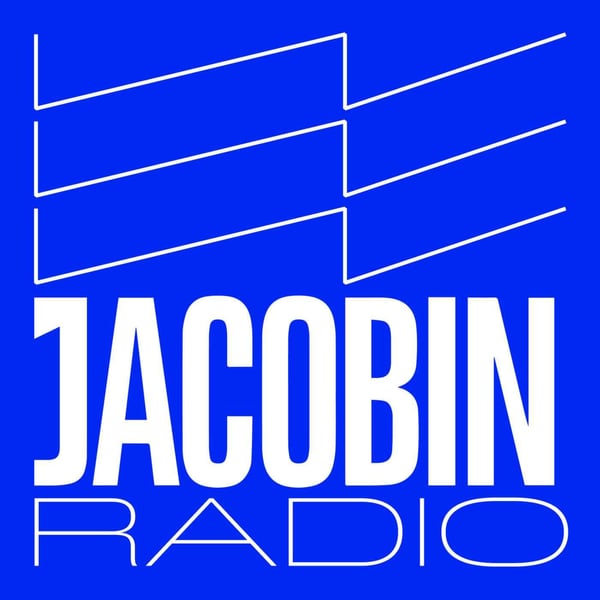Long Reads: Kieran Durkin on Erich Fromm, Marxist Humanism, and the Revolution of Hope
Jacobin Radio
Jacobin
4.7 • 1.5K Ratings
🗓️ 23 January 2021
⏱️ 51 minutes
🧾️ Download transcript
Summary
Long Reads is a Jacobin podcast looking in-depth at political topics and thinkers, both contemporary and historical, with the magazine’s longform writers. Hosted by Features Editor Daniel Finn.
Our guest for this episode is Kieran Durkin. Kieran is a Marie Skłodowska-Curie global fellow at University of York, and a visiting scholar at University of California Santa Barbara. He is the author of The Radical Humanism of Erich Fromm and co-editor of Erich Fromm’s Critical Theory: Hope, Humanism, and the Future.
Read Kieran's essay here: https://www.jacobinmag.com/2020/08/erich-fromm-frankfurt-school-marxism-weimar-germany
Produced by Conor Gillies, music by Knxwledge.
Hosted on Acast. See acast.com/privacy for more information.
Transcript
Click on a timestamp to play from that location
| 0:00.0 | Hello, you're very welcome to Longreans, a Jacqueline podcast where we look in depth of political topics and thinkers. |
| 0:07.0 | My name's Daniel Finn, on the features editor here at Jacobin, and I'll be presenting the show. The German writer Eric Fromm was one of the most |
| 0:16.2 | important social philosophers of the last century. In books like Escape from Freedom and the |
| 0:21.6 | Sain Society, Fromm tried to explain the rise of fascism by drawing on the work of Carl Marx and Sigmund Freud. |
| 0:29.0 | Himself in exile from the Nazis, Fromm settled permanently in the US, but remained a strong critic of American |
| 0:35.6 | capitalism and the nuclear arms race. A best-selling author in his own time, who appeared on |
| 0:41.5 | national television, Fromm may not be as well remembered today as |
| 0:45.2 | former colleagues like Max Horkheimer and Theodore Adorno. |
| 0:49.3 | But his ideas are still an important tool in the fight against authoritarian nationalism. |
| 0:54.0 | Our guest today is Kiran Duran Deacon, Kiran teaches at the University of York, and he's the author of The Radical Humanism of Eric Fromm. |
| 1:02.0 | I began by asking him about Fromm's experience as a young man |
| 1:06.5 | when his native Germany went through a decade of war, revolution and economic crisis from |
| 1:11.1 | 1914 onwards. |
| 1:14.2 | I think that living through these events that completely transfigured Germany in the |
| 1:20.5 | early 1900s, this had an absolutely profound effect on from he spoke |
| 1:26.8 | some years later in his 60s actually of the great war as the event more than anything else that determined his |
| 1:37.1 | intellectual development and of how struck he was by the nakedness of the hate and irrationality as it manifested in German nationalist feeling towards the British at the time, |
| 1:50.0 | you know how the British had suddenly become evil and unscrupulous and |
| 1:54.7 | intent on destroying the innocent and all-too-trusting German heroes as he put it. |
| 1:59.7 | So I think the whole experience of the war with its mass irrationality, not to mention of course it's, you know, what you say is its unheralded kind of |
| 2:13.3 | level destructiveness was an absolutely central influence on from and what ultimately pushed |
| 2:16.7 | in the direction of the study of psychology and of Freud and of psychoanalysis. |
... |
Please login to see the full transcript.
Disclaimer: The podcast and artwork embedded on this page are from Jacobin, and are the property of its owner and not affiliated with or endorsed by Tapesearch.
Generated transcripts are the property of Jacobin and are distributed freely under the Fair Use doctrine. Transcripts generated by Tapesearch are not guaranteed to be accurate.
Copyright © Tapesearch 2025.

